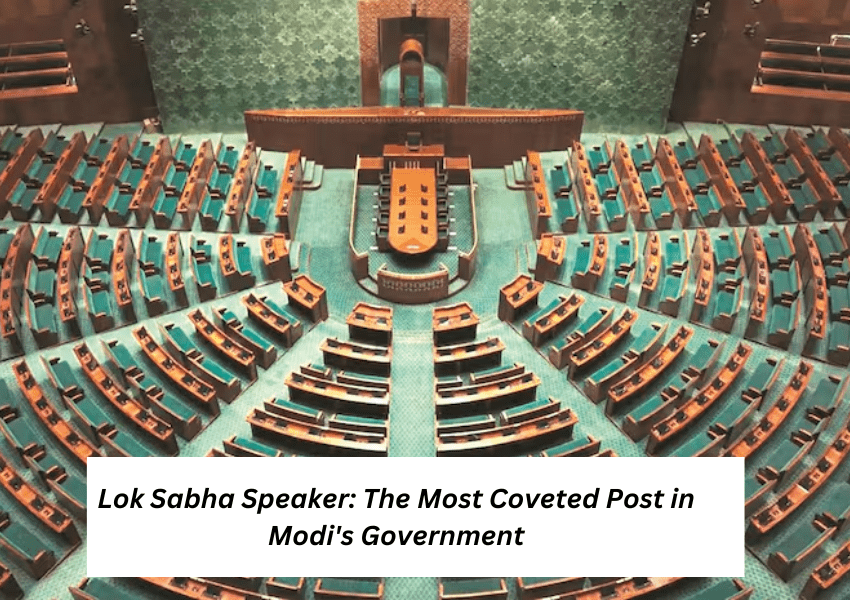Lok Sabha Speaker: In the Modi government, the demand for the post of Lok Sabha Speaker is greater than that for ministerial positions. The significance of this role is highlighted in the context of the recently formed BJP government, which had to rely on the NDA alliance to secure a majority.
Formation of the BJP Government
For the third consecutive time, the BJP government has been formed under the leadership of Narendra Modi. However, this time the BJP secured only 240 seats, falling 32 seats short of the majority, necessitating support from the NDA alliance. On Sunday, Modi took the oath as Prime Minister and assumed charge. Amidst this political backdrop, the focus is on the post of the Lok Sabha Speaker, with major NDA allies TDP and JDU showing keen interest.
Importance of the Lok Sabha Speaker
This Post plays a crucial role as the chairman of the Lok Sabha, ensuring the proper conduct of House meetings and maintaining order. The Speaker has the authority to take disciplinary actions as per the rules, including adjourning or suspending the House. Additionally, the Speaker determines the agenda of meetings, voting schedules on bills, and who can vote. The Speaker also recognizes the Leader of the Opposition. Although the post is intended to be impartial and not linked to any party, its strategic importance cannot be understated.
Selection Process for the Lok Sabha Speaker
By law, the post of Lok Sabha Speaker becomes vacant just before the first meeting of the new Lok Sabha. The President appoints a pro tem speaker who administers the oath to members. Subsequently, the Speaker is elected by a simple majority. While there are no special criteria for selection, a deep understanding of the constitution and parliamentary rules is essential. In the last two Lok Sabha elections, the BJP, having secured a majority, entrusted this responsibility to Sumitra Mahajan and Om Birla.
Why the Lok Sabha Speaker Post is Special
The post of Lok Sabha Speaker is highly significant due to its decisive role in Parliament. Reports suggest that leaders like Chandrababu Naidu and Nitish Kumar are eyeing this post as a form of political insurance. Recent instances of internal differences within ruling parties leading to splits and government collapses highlight the importance of the anti-defection law, which grants extensive powers to the Speaker. This law authorizes the Speaker to decide on matters related to member disqualification due to defection. Nitish Kumar, having previously accused the BJP of attempting to break his party, views the Speaker post as a safeguard against such moves.
Challenges and Responsibilities
The position of Lok Sabha Speaker is complex, bringing both significant responsibilities and challenges. The Speaker must remain impartial despite being appointed after winning an election from a major party, which can naturally lead to conflicts. Thus, handling this post requires a delicate balance.
While the TDP is also interested in this post, the final decision on who will assume the role remains uncertain.





